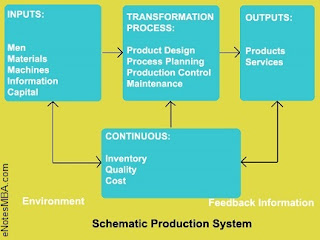Introduction to Business Economics
Business Economics - Introduction, Meaning, Definition, and Characteristics.
Introduction to Economics
Economics affects daily lives of individuals, households, organizations, industries, and nations. Everytime you make decisions like - what to purchase, how much to purchase, how much to save, where to invest, or anything related to best use of your hard-earned salary; you make an economic decision. Everyone wants to get rich, increase their wealth, hold over productive resources, earn more and more profit, raise their standard of living, and make their future secure. Attainment of all this requires proper understanding of economic issues. Therefore, it is important to understand some of the simple economic factors have a bearing on our daily life.
What is Economics?
The word Economics originates from the Greek word "Oikonomikos" which can be divided into two parts - "Oikos" which means House, and "Nomos" which means Management. Thus, economics means house management. It can be described as - the head of a family have to fulfill unlimited needs and wants of the family members in the limited salary. Similarly, society as a whole also faces the same problem of tackling unlimited wants of the member of society with the limited resources available in society. Economics is the study of how humans make decisions in the face of scarcity. Scarcity means that human wants for goods, services and resources exceed what is available.
Economics is a social science concerned with the production, distribution, and consumption of goods and services. It studies how individuals, businesses, governments, and nations make choices on allocating resources to satisfy their wants and needs, trying to determine how these groups should organize and coordinate efforts to achieve maximum output.
Economics can generally be broken down into macroeconomics, which concentrates on the behavior of the aggregate economy, and microeconomics, which focuses on individual consumers and businesses.
Definitions of Economics
According to Paul Samuelson, "Economics is the study of how people and society choose, with or without the use of money, to employ scarce productive resources which could have alternative uses, to produce various commodities over time and distribute them for consumption now and in the future among various persons and groups of society."
According to Lionel Robbins, "Economics is the science which studies human behavior as a relationship between given ends and scarce means which have alternative uses."
Introduction to Business Economics
In this globalized and highly competitive business world, it is of paramount importance for managers to make rationale decisions. For this, managers should have clear understanding of different concepts, theories, and tools of economics. Business Economics or Managerial Economics is a specialized discipline of economics that undertakes a study of various concepts, theories, logic, and tools used in business decision making.
Business Economics is also known as "Managerial Economics". It is also known as "Applied Economics". Business Management means any activity undertaken to earn profit, run by a person and managed with the help of economics. Therefore Managerial Economics is also called Business Economics. In Managerial Economics the concepts, principles and theories in pure economic science are applied to any business activities. Therefore it is also called as Applied Economics.
Definitions of Business Economics
According to E. F. Brigham and J. L. Pappas, "Managerial Economics is the application of Economic theory and methodology to business administration practise."
According to McNair and Meriam, "Managerial Economics consists of the use of Economic modes of thought to Analise business situations."
According to M. H. Spencer and L. Siegelman, "Managerial Economics is the integration of economic theory with business practise for the purpose of facilitating decision making and forward planning."
Characteristics of Business Economics
- Business economic studies business units, so it is microeconomics in character.
- Business economics is more pragmatic than traditional economics.
- Business economics is more normative in character than positive or descriptive economics.
- Business economics integrates theory and business practise.
- Business economics mainly uses theory of the firm.






